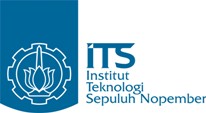Biodiesel Potentials of Waste Cooking Oil (WCO): Production, Content of Fuel Properties, and Effects on Engine Performance
Abstract
Keywords
Full Text:
PDFReferences
“IMO’s work to cut GHG emissions from ships,” 2023. https://www.imo.org/en/MediaCentre/HotTopics/Pages/Cutting-GHG-emissions.aspx (accessed Apr. 18, 2023).
A. Rahman, R. Richards, P. Dargusch, and D. Wadley, “Pathways to reduce Indonesia’s dependence on oil and achieve longer-term decarbonization,” Renew. Energy, vol. 202, no. November 2022, pp. 1305–1323, 2023, doi: 10.1016/j.renene.2022.11.051.
“Mission - About - IEA.” https://www.iea.org/about/mission (accessed Apr. 18, 2023).
X. Chen et al., “Pathway toward carbon-neutral electrical systems in China by mid-century with negative CO2 abatement costs informed by high-resolution modeling,” Joule, vol. 5, no. 10, pp. 2715–2741, 2021, doi: 10.1016/j.joule.2021.10.006.
L. L. Sun, H. J. Cui, and Q. S. Ge, “Will China achieve its 2060 carbon neutral commitment from the provincial perspective?,” Adv. Clim. Chang. Res., vol. 13, no. 2, pp. 169–178, 2022, doi: 10.1016/j.accre.2022.02.002.
“Indonesia Oil Reserves, Production and Consumption Statistics - Worldometer.” https://www.worldometers.info/oil/indonesia-oil/ (accessed Apr. 18, 2023).
“Palm Oil Production by Country in 1000 MT - Country Rankings.” https://www.indexmundi.com/agriculture/?commodity=palm-oil (accessed Apr. 18, 2023).
A. Rifin, Feryanto, Herawati, and Harianto, “Assessing the impact of limiting Indonesian palm oil exports to the European Union,” J. Econ. Struct., vol. 9, no. 1, 2020, doi: 10.1186/s40008-020-00202-8.
I. A. Rum, A. Tukker, A. de Koning, and A. A. Yusuf, “Impact assessment of the EU import ban on Indonesian palm oil: Using environmental extended multi-scale MRIO,” Sci. Total Environ., vol. 853, no. September, p. 158695, 2022, doi: 10.1016/j.scitotenv.2022.158695.
“The Biodiesel Program of Indonesia; B35 Scheduled to Be Imposed on 1 February 2023 | Indonesia Investments.” https://www.indonesia-investments.com/news/todays-headlines/the-biodiesel-program-of-indonesia-b35-scheduled-to-be-imposed-on-1-february-2023/item9591 (accessed Apr. 18, 2023).
S. S. Suardi, “Analisa Penggunaan Biodiesel Minyak Jagung Sebagai Campuran Bahan Bakar Alternatif Mesin Diesel,” Inovtek Polbeng, vol. 9, no. 2, p. 280, 2019, doi: 10.35314/ip.v9i2.1041.
Suardi, M. Purwanto, A. Y. Kyaw, W. Setiawan, and M. U. Pawara, “Biodiesel Production from POME ( Palm Oil Mill Effluent ) and Effects on Diesel Engine Perfor- mance,” Int. J. Mar. Eng. Innov. Res., vol. 7, no. 4, pp. 292–299, 2022, doi: 10.12962/j25481479.v7i4.14492.
S. Semin, B. Cahyono, F. M. Muhammad, and B. Barokah, “The Effect of Heating of B20 Fuel to Combustion Characteristic on the Diesel Engine Based on Experiment,” Int. J. Mar. Eng. Innov. Res., vol. 5, no. 1, 2020, doi: 10.12962/j25481479.v4i4.5654.
“Kemenperin: Rata-rata Penyaluran Minyak Goreng Curah Bertambah Sebesar 800 Ton/Hari di Maret – April 2022,” 2022. https://kemenperin.go.id/artikel/23239/Rata-rata-Penyaluran-Minyak-Goreng-Curah-Bertambah-Sebesar-800-TonHari-di-Maret-–-April-2022 (accessed Apr. 18, 2023).
Humas EBTKE, “Direktorat Jenderal EBTKE - Kementerian ESDM,” 2022. https://ebtke.esdm.go.id/post/2020/12/07/2725/minyak.jelantah.sebuah.potensi.bisnis.energi.yang.menjanjikan?lang=en (accessed Apr. 18, 2023).
“Transesterification - SRS BiodieselSRS Biodiesel.” https://www.srsbiodiesel.com/technologies/transesterification/ (accessed Apr. 18, 2023).
P. Balikpapan, “Petrolab - laboratory independent,” 2023. https://petrolab.co.id/about-us/ (accessed Apr. 19, 2023).
W. S. Suardi, Muhdar Tasrief, Samsu Dlukha Nurcholik, Amalia Ika Wulandari, “Testing the Inclination of an Industrial Diesel Engine Under Static Conditions According to the International Convention for the Safety of Life at,” Int. J. Mar. Eng. Innov. Res., vol. 8, no. 1, pp. 8–15, 2023, doi: http://dx.doi.org/10.12962/j25481479.v8i1.15749.
V. S., J. E., A. E. Kabeel, B. R., R. Sathyamurthy, and B. Madhu, “Multi-intractable analysis for alternative Diesel–Ethanol–Canola methyl ester ternary blend,” Energy Reports, vol. 8, pp. 455–462, 2022, doi: 10.1016/j.egyr.2021.11.051.
A. Z. Abdullah, N. Ghazali, P. Y. Hoo, and N. I. Basir, “Selective glycerol esterification to monolaurate over ZrO2/MCM-41 catalysts prepared using impregnation and precipitation methods,” Chem. Eng. Commun., vol. 209, no. 5, pp. 607–622, 2022, doi: 10.1080/00986445.2021.1881778.
Suardi, Wira Setiawan, Andi Mursid Nugraha Arifuddin, Alamsyah, Rodlian jamal Ikhwani “Evaluation of Diesel Engine Performance Using Biodiesel from Cooking Oil Waste ( WCO ),” J. Ris. Teknol. Pencegah. Pencemaran Ind., vol. 14, no. 1, pp. 29–39, 2023, doi: https://doi.org/10.21771/jrtppi.2023.v14.no1.p29-39.
DOI: http://dx.doi.org/10.12962%2Fj25481479.v8i2.16679
Refbacks
- There are currently no refbacks.
 |  |  |  |
| |  |  |
|
|
|
|
|
P-ISSN: 2541-5972
E-ISSN: 2548-1479
IJMEIR journal published by Department of Marine Engineering, Faculty of Marine Technology, Institut Teknologi Sepuluh Nopember Surabaya Indonesia under licenced Creative Commons Attribution-ShareAlike 4.0 International Licence. Based on https://iptek.its.ac.id/index.php/ijmeir/


1.png)
